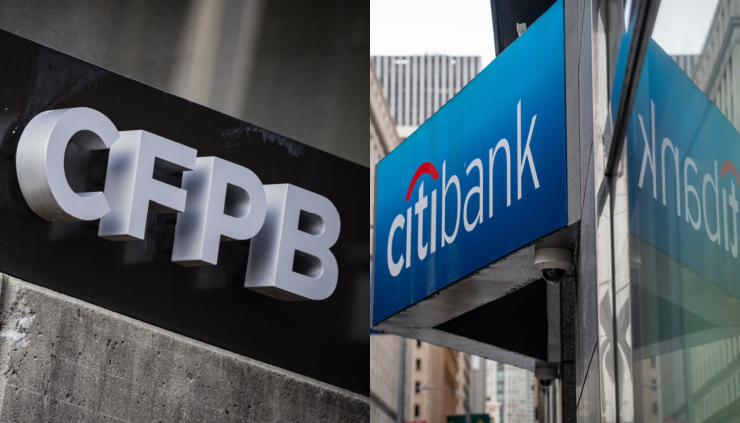
Citigroup has settled allegations by the Consumer Financial Protection Bureau of discrimination against Armenian Americans in California — activity the bank says was limited to a small number of employees who sought to prevent criminals from committing fraud.
Citi agreed to pay a $26 million fine without admitting wrongdoing to settle claims that employees at the third-largest U.S. bank by assets wrongfully denied access to credit for applicants profiled as being of Armenian origin, according to a consent order the regulator issued on Wednesday.
Between 2015 and 2021, Citi employees "negatively" assessed applications for Citi-branded credit cards at retail stores by people "suspected" of being Armenian Americans from Southern California, the order states.
Citi employees applied "extra scrutiny" to credit card applications submitted by people with last names ending in "-ian" or "-yan," the CFPB states in the consent order.
Such applicants were considered "more likely to commit fraud" and "bust outs" who would leave the country, according to the consent order, which cites internal communications among Citi employees.
Some employees referred to applicants as "Armenian bad guys" or the "Southern California Armenian Mafia," the consent order states.
"The CFPB found that Citi purposefully discriminated against applicants of Armenian descent, primarily based on the spelling of their last name," CFPB Director Rohit Chopra said in a statement.
"Citi stereotyped Armenians as prone to crime and fraud. In reality, Citi illegally fabricated documents to cover up its discrimination," Chopra said.
A small number of bank employees took "impermissible actions" as part of an effort to "thwart" an Armenian fraud ring operating throughout California, Karen Kearns, a spokesperson for Citi, said in an emailed statement.
"While we prioritize protecting our bank and our customers from fraud, it is unacceptable to base credit decisions on national origin," Kearns said in the statement. "We sincerely apologize to any applicant who was evaluated unfairly," Kearns said in the statement. Citi has taken measures to prevent a recurrence of this conduct, according to Kearns.
Over the last decade, the Department of Justice has brought several cases against Armenian Americans accused of participating in organized crime or other wrongdoing in California. In 2011, a criminal task force arrested 83 individuals suspected of participating in the street gang Armenian Power's schemes to sell drugs and fraudulently obtain at least $10 million.
Glendale is home to around 15% of the Armenian-American population in the U.S., according to the CFPB.
The discrimination allegations against Citi are "outrageous," according to Anthony Barsamian, co-chair of the board of trustees for the Armenian Assembly of America.
Barsamian, a third-generation Armenian American who's a trust estate tax lawyer at Hutchings Barsamian Mandelcorn and has banked at Citi for two decades, said the allegations are "quite concerning for someone like me, who is entrusted with lots of money and works with different banks."
Barsamian, whose grandparents moved to the U.S. early in the 20th century, said people of Armenian descent have been "role models" in the Glendale community after a wave of immigrants moved to California and elsewhere following
George Deukmejian, who served as California's governor between 1983 and 1991, was of Armenian descent.
"There are ways to protect against fraud, but certainly not by wholesale discrimination against one group of people, one suspect group, over others," Barsamian said in an interview.
"I take no personal offense to this. It's just ridiculous," he said.

The CFPB's action against Citi comes at a time when banks and financial institutions face heightened regulatory scrutiny over discriminatory lending practices and fraud prevention compliance.
Citi violated the Equal Credit Opportunity Act and Consumer Financial Protection Act, the CFPB alleged in its consent order.
Federal regulations state that banks cannot "group people together and blanketly discriminate based on national origin," according to Elyse Hicks, consumer policy counsel at the Americans for Financial Reform.
Hicks said she "highly doubts" that only Armenian Americans belonged to the fraud ring Citi cited as the motivation for the discriminatory practices.
"Trusting banks to regulate themselves has proven to be unfruitful," Hicks said.
"One of the goals of ECOA is to stop financial institutions from relying on stereotypes and assumptions about groups of people such as national origin," a spokesperson for the CFPB said in a statement. "In fact, institutions have tools available to them that are more effective than engaging in such unlawful discrimination."





